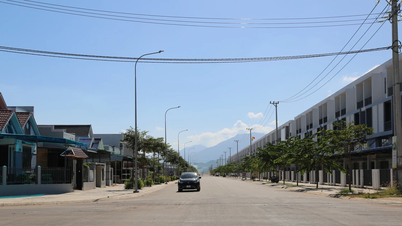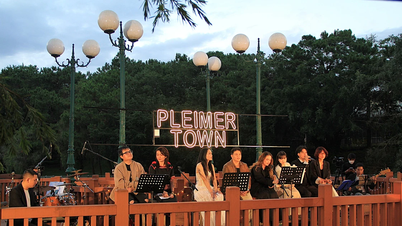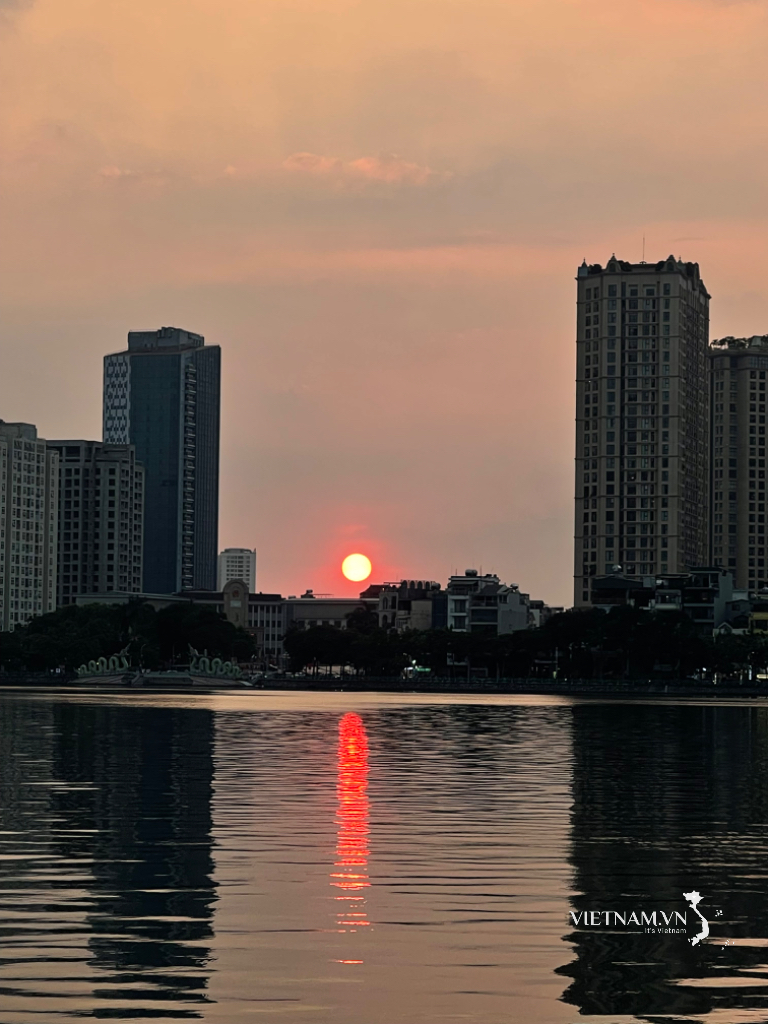
Trinh Vuong and Trung Vuong are two different schools in Quy Nhon. Trung Vuong is located on Nguyen Hue Street, while Trinh Vuong is located on Gia Long Street (now Tran Hung Dao Street), right next to Nhon Church.
Before 1975, Trinh Vuong High School was managed by the Sisters of the Congregation of the Lovers of the Holy Cross of Quy Nhon, and was only for female students. Writer and teacher Nguyen Mong Giac, author of the novel “The Flood Season of the Kon River”, once recounted that Trinh Vuong was not only a school, but also one of the symbols of Quy Nhon female students.
In the memories of many people, the scene of Trinh Vuong school leaving has a very unique beauty, both poetic and romantic: white dresses fluttering, the sound of wooden clogs clacking on the yard and many boys waiting in front of the school gate to hum the familiar song: "When you leave school, I will follow Ngo home..." (lyrics of the song "Ngay Xua Hoang Thi" by musician Pham Duy).
Musician Ngo Tin once said: “Back then, my younger sister studied at Trinh Vuong. Every afternoon, I would pick her up at the school gate, where the sound of wooden clogs could be heard, and the silhouette of ao dai could be seen under the trees. Those sounds and images became part of my memory, seeping into my blood and flesh, never fading away.”
Perhaps from that sweet memory, he wrote these emotional lyrics: “The sound of the church bell echoes somewhere, taking us to class with clogs echoing in the school yard… Quy Nhon, oh! The afternoon after Trinh Vuong class, bustling Gia Long street, hesitantly someone’s shirt flutters…”.

Among the songs written about Quy Nhon, “Quy Nhon immense nostalgia” is considered the song that touches the hearts of listeners the most. For Quy Nhon people far from home, that melody and those lyrics seem to awaken a whole world of memories, so that the nostalgia for their homeland suddenly becomes immense and tearful in each verse.
And perhaps, what makes the lasting vitality and spread of "Quy Nhon - immense memories" not only lies in the melody or lyrics, but in the awakened memories: the sound of church bells, the sound of wooden clogs in the school yard, the white dress of the Virgin Queen fluttering hesitantly in the afternoon wind...
Those seemingly small things crystallize into surging emotions, creating the soul of a piece of music and evoking the image of a poetic city.
Music is therefore not only for listening, but also to preserve distant moments, so that everyone can find their own memories in it.
And who knows, one afternoon, when suddenly hearing the song "Afternoon after school Trinh Vuong...", we will feel our hearts flutter, as if we have just returned to a beloved Quy Nhon, where memories still echo...
Source: https://baogialai.com.vn/chieu-tan-lop-trinh-vuong-menh-mang-trong-niem-nho-post567770.html




![[Photo] Prime Minister Pham Minh Chinh meets with representatives of outstanding teachers](https://vphoto.vietnam.vn/thumb/1200x675/vietnam/resource/IMAGE/2025/11/15/1763215934276_dsc-0578-jpg.webp)
![[Photo] Panorama of the 2025 Community Action Awards Final Round](https://vphoto.vietnam.vn/thumb/1200x675/vietnam/resource/IMAGE/2025/11/15/1763206932975_chi-7868-jpg.webp)

![[Photo] General Secretary To Lam receives Vice President of Luxshare-ICT Group (China)](https://vphoto.vietnam.vn/thumb/1200x675/vietnam/resource/IMAGE/2025/11/15/1763211137119_a1-bnd-7809-8939-jpg.webp)







































































































Comment (0)